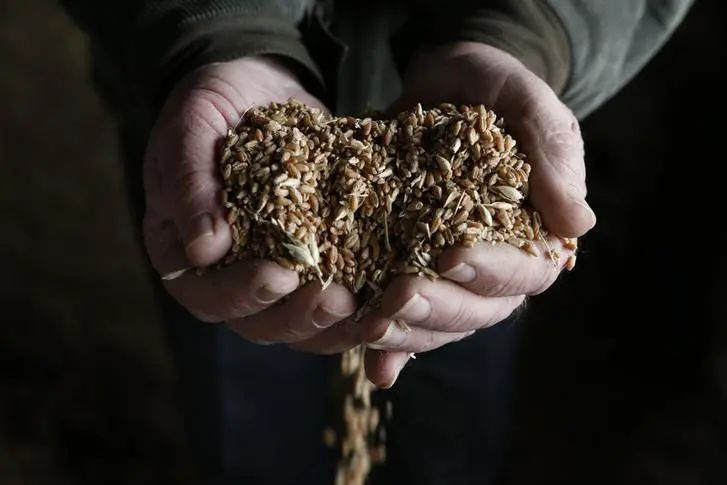PHOTO
TRIPOLI - Libya will have to cover its 2018 grain consumption needs of around 1.2 million tonnes almost entirely by imports but hopes to boost production from the next harvest, a senior official said.
Abdelmoneim Mohamed Shihab ad-Din, the top official in the agricultural ministry in a U.N.-backed government in Tripoli, said the oil producing nation could meet at least half of its cereal needs in future, if security and power supply improved.
To ramp up output, Libya will invest $120 million into its farming sector, of which more than $10 million will go on seeds, he said.
The funds come after an emergency project with the U.N.'s Food and Agriculture Organization (FAO) which raised the awareness of the government to the importance of food security, FAO officials said.
"This year it will be the same (with imports meeting consumption) but if the security improves a bit then output will improve the next (2018) season," ad-Din said in an interview.
"Electricity supply has improved. We can reach 50 percent (of 1.2 million tonnes of grain consumption)," he said, when asked where output could be in the next two years.
According to the ministry, 1,200 farmers will be supplied with the seeds.
He said last year's crop output was around 100,000 tonnes, though no exact figures exist due to the dysfunctional Libyan state, in turmoil since the toppling of Muammar Gaddafi in 2011.
Farmers have been struggling to get seeds as a fall in oil revenues since 2011 has hit the supply of foreign exchange needed to fund imports.
Improving output would not just lower the import bill of a country suffering from economic meltdown but also provide an income in poor rural areas, often cut off from state support due to poor security, and African migrants working as farmhands.
But much will depend on whether security improves. The focus of the plan is on the main farming regions deep in the south in Ubari and Sebha, which were hit by tribal fighting and lack of power supply, as well as Benghazi in the east.
DATES
Libya, a country of six million, was once home to large-scale farming schemes built by Italian colonial rulers, but has neglected the sector since oil exports started in the 1960s.
Still, the country produced up to 450,000 tonnes of cereal until 2011, officials said.
Since then, crop output has been hovering around 100,000 tonnes. An FAO study showed seeds and modern equipment had become unavailable in many parts of Libya.
Development has also been hampered by a split between two governments - the Tripoli one and an eastern rival, though ad-Din said his ministry was cooperating on a technical level with the east, allowing it to ship seeds to Benghazi.
Libya also produces some 120,000 tonnes of dates, some of which still get exported despite the chaos, alongside cooking oil and strawberries grown in the more stable north of the country, officials said.
"It's a difficult situation but we are more optimistic now," ad-Din said. "But we need more foreign assistance."
(Editing by Mark Potter) ((Ulf.Laessing@thomsonreuters.com; Reuters Messaging: follow me on twitter @ulflaessing))





















